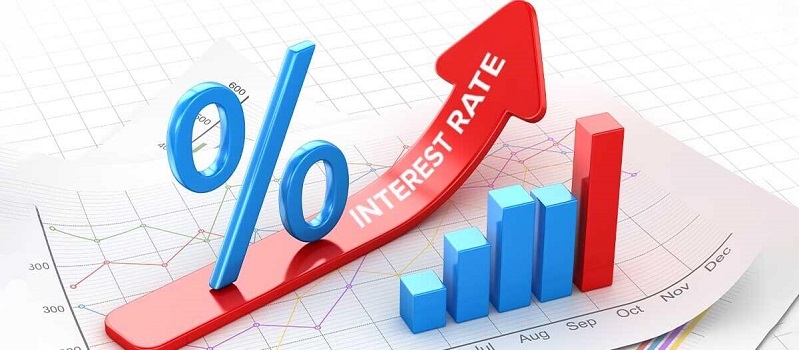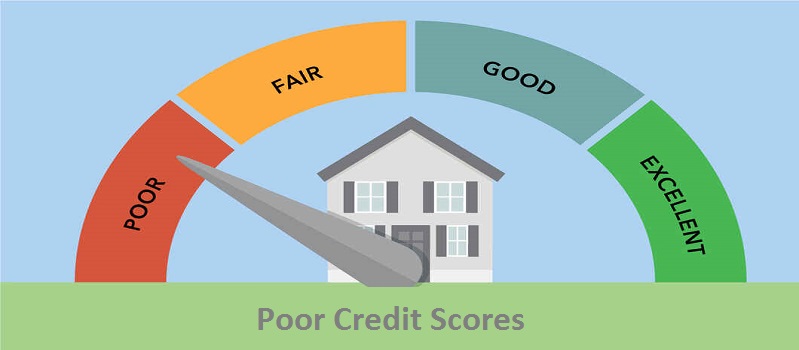Increasing the Bank of England’s base rate raises interest rates. It means the bank will charge more for loans to financial institutions and pay more for deposits.
This will affect how much interest your bank, building society, or another lender will charge you to borrow money and how much interest it will pay you to save. When interest rates go up, you can make more money from your savings, but borrowing money costs more.
Over the past few years, people who borrow and save money have gotten used to historically low-interest rates. On the other hand, on December 16, 2021, the Bank of England (BoE) said that the base rate would be raised from an all-time low of 0.1% to 0.25%.
Since then, the base rate has been hiked again to curb inflation. It will reach 0.5% in February 2022 after reaching a new high. Inflation rises when interest rates are low because individuals spend more. The Bank of England (BoE) plans to raise interest rates to lower inflation.
What happens when rates rise?
When the BoE boosts interest rates, it charges financial institutions more to borrow money and gives them higher savings bonuses.
The rate that your bank, building society, or another lender will charge you for interest, or the rate that you will get on your savings from a provider is based on the rate that these financial institutions will pay or earn from the BoE. Bank of England’s MPC sets the base rate.
About eight times a year, the rate is usually announced to go up, down, or stay the same. If something unusual happens, rates may be changed. Your bank or other lender is not required to change the interest rates on its products right away if the base rate goes up or down unless the product is designed to do so, like a tracker mortgage.
But in that case, your bank or another lender will have to make the change as soon as possible. But because it affects how much financial institutions are charged or paid, most of them will try to pass on the increase, or at least some of it, to their clients.
Does the rate of interest change when inflation goes up?
As a general rule, the Bank of England might think about raising interest rates if inflation goes up. This is because people think they have an inverse relationship, which means that if one grows, the other will shrink.
By gently boosting interest rates, central banks can strive to curb inflation and boost savings. A worker’s wage won’t buy as much if inflation is too high. When compared to the cost of living, this means that both household income and the value of their savings go down.
At the moment, the government has told the Bank of England (BoE) to aim for 2% inflation. It thinks this is a stable number that will keep the prices of things people need from going up too much while also making wages go up.
What effects would an increase in interest rates have on you?
Whether you save money, borrow money, or do both, how an increase in interest rates affects your finances will depend on which category you fall into.
When interest rates rise, borrowing costs more but saving usually pays off better. In situations like this, you will also get finance deals at higher interest. For instance, if you want to finance a car, you can go to electric car finance deals in the UK and ask about the interest rates.
1. Mortgages
When interest rates go up, what happens to your mortgage depends on the type of loan you took out to buy or refinance your home. If you do not want these types of loans, you can also consider quick cash loans.
Changes will have the biggest effect on tracker mortgages, among the first mortgages affected. The monthly payments of people with mortgages with rates that change based on the market will go up immediately. This is because the Bank of England (BoE) controls the interest rate. This means your loan interest rate may change.
As long as interest rates keep going up, it is likely that the monthly payments on mortgages with standard variable rates will also go up. The rise isn’t tied to the base rate. Instead, your lender will decide how much the increase will be.
For example, your lender may raise your rate from 3% to 3.5%. With a mortgage term of 25 years and a loan amount of £250,000, this would mean that your monthly payment would go up from £1,186 to £1,252.
Fixed-rate mortgages feature fixed monthly payments for the fixed term. This won’t change your payments unless you are getting close to the end of your mortgage term and are thinking about refinancing.
2. Loans
When the interest rate goes up, it’s often more expensive to get a new personal loan than it was before. When the benchmark interest rate goes up, most loan companies will charge much higher interest rates on new loans.
The interest rate and monthly payment should not change if you already have an unsecured personal loan. This is because most unsecured personal loans have fixed interest rates.
On the other hand, you can get a secured loan with an interest rate that changes over time. If the base rate rises, so will your monthly payments and loan balance.
3. Savings account
This is because banks and building societies are not likely to immediately raise the interest rates on their savings accounts to match the increase in the base rate. Instead, they might just give some of the money to someone else.
The type of savings product you have will also affect whether or not your balance goes up. Fixed-rate savings accounts, like a fixed-rate bond or a fixed-rate cash ISA, have an interest rate that stays the same for the life of the product. Base rate changes won’t affect your savings.
Conclusion
Rising interest rates can be mitigated in several ways. Paying payments on time can boost your finances. Your credit score will go up as a result, and if you ever need to borrow money, you may also be able to get a better interest rate. Pay off as much debt as possible.
This can help you get a lower interest rate when you do need to borrow money, and it can also help you pay less each month. Pay off as much debt as possible. They can help you understand how rising interest rates might affect your situation and find ways to lessen the effects.

Emma Anderson is a financial advisor at Quickloanslender who always believes in researching hard to know her clients’ financial problems. She takes the time to understand their financial wants and needs to write the blogs on them as the solutions. In her long 14 years of experience, she has written plenty of blogs on the financial and business sectors of the UK.
Emma Anderson has been recognised for her work in financial planning and her blogs are regularly published in the website of Quickloanslender. As far as her educational qualification is concerned, she has done Masters in Accounting and Finance, and done PG Diploma in Creative Writing.






